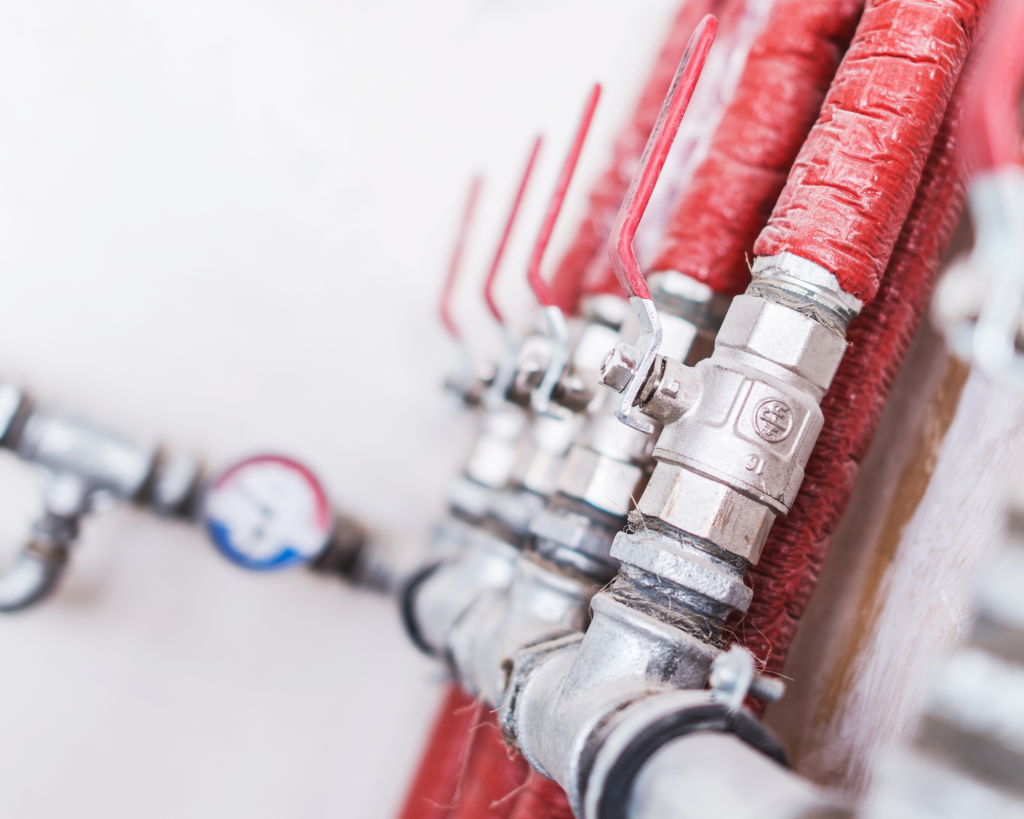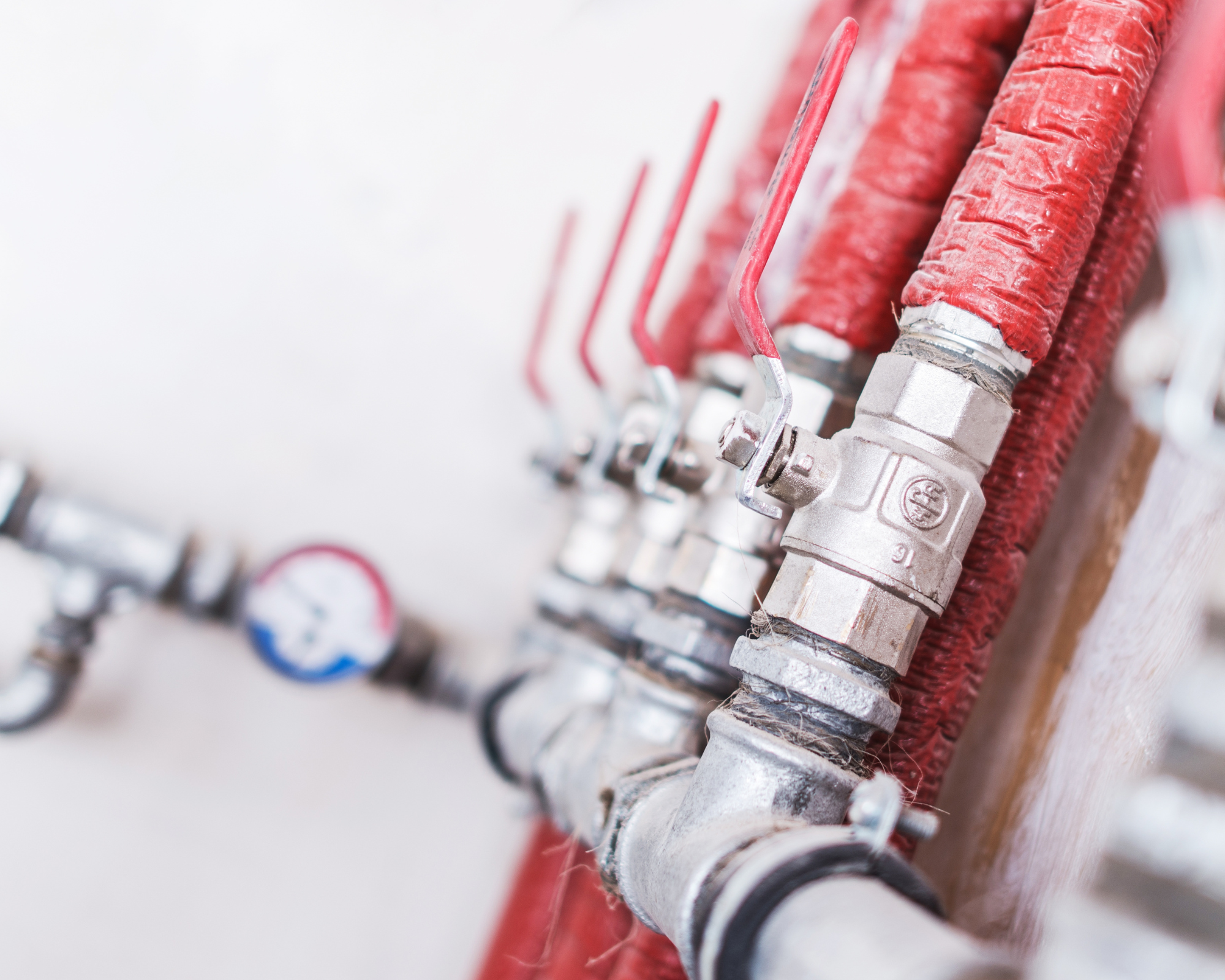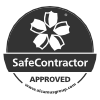Greetings everyone, welcome back to our ongoing series where we explore the best practices for managing closed recirculating water systems. In our previous discussion, we delved into the potential issues that can arise when proper care is not taken with closed systems. Today, we will be taking a closer look at the various treatment options available for maintaining and even improving the health of these systems.

Author
The article was written by Kris Rowland, our Head of Technical, Training and Compliance. Kris has more than 20 years of experience in the industry and is responsible for monitoring our clients’ compliance with the assets we manage on their behalf using ZetaSafe, our bespoke compliance monitoring tool.
Sign up to our newsletter
Keep up to date with the world of water treatment
Non-Chemical Techniques For Closed Water System Management
To begin, let’s examine the two primary methods for managing closed system care: chemical and non-chemical techniques. While chemical addition is a well-established and commonly used approach, we often overlook the simpler non-chemical techniques. So, let’s start with those.
One of the easiest ways to manage the risk of contaminants such as carbonate and sulphate scale buildup or oxidation corroding metallic pipework is to limit the amount of water loss and subsequent top-up from the mains supply. Every time you add untreated mains water to the system, you introduce more scale-forming salts, micro-organisms, and oxygen. As we discussed previously, these elements are the precursors to scale formation, oxidation, and microbiological fouling. By limiting their concentration in the system, we can more easily control these crucial parameters in the long term. But how can we prevent water loss, you may ask?
Well, this can be as simple as:-
- Ensuring all connections withing the water system are as ‘tight’ as possible.
- Having a PPM regime in place to periodically ascertain that all water draw off points remain ‘tight’.
- Eliminating or minimising system flushing and draining.
Introducing Equipment Into Your Closed Water System
All of these measures can dramatically improve the stability of the water within the closed system making it far less likely that excessive chemical treatment will be required to adequately control the water chemistry. Where we frequently see organisations go wrong is jumping straight to a system flush or chemical clean where contamination is present within the water system.
System flushing is not as simple as replacing the water within the closed system, remember each time you add mains quality water to a closed system you are introducing the precursors of scale formation, oxidation, and microbiological fouling so care should be taken to ensure that where a flush is carried out that it is completed in a controlled manner minimising the risk of causing flash corrosion. What is very often overlooked is the ability to add equipment to the closed system which can ‘clean up’ the contamination within the system without the replacement of large volumes of water.
Assets such as dirt separators, magnetic and none magnetic solids removal and side stream filtration can all be used to remove combinations of contaminants without significant water loss and can then either be removed from the system when no longer required or left in place should they be required in the future. Of course this ‘online’ method of cleaning can also be aided by the addition of chemicals such as polymers and mild cleaning agents, which act to mobilise the debris within the system to enable a more complete capture by the filtration method applied, it is essential though that the surfaces of pipework are treated appropriately as harsh chemicals may cause or exacerbate existing corrosion.
To effectively prevent costly and complex remediation procedures and minimise water loss in a closed recirculating water system, it is advisable to employ additives specifically formulated to slow down, halt, or prevent deterioration of the pipework and assets. Various commercial chemicals are available for treating systems made of different materials, including both metallic and non-metallic components. Common types of these chemicals include corrosion and scale inhibitors. It is crucial to carefully select the appropriate chemical for the water system, as not all chemicals are suitable for all types of materials used in the construction of the system. For instance, Aluminium, commonly present in closed recirculating water systems, is an ‘amphoteric’ metal, making it susceptible to corrosion when exposed to water pH levels outside the range of 6.5 to 8.5. Therefore, it is generally recommended to avoid using high or low pH treatment chemicals in such cases.
In most cases the choice of treatment and its success will depend upon the following factors: –
- The type of water system and how it is operated.
- The physical conditions within the water system (ie, operating temperature, flow and asset conditions).
- The materials which make up the water system (ie, steel, copper, brass etc…) and their current condition.
- The quality of the water within the system including its chemistry (including treatment chemical reserve concentrations).
Considerations for Closed Water System Sampling
Chemical inhibitors typically operate in one of three ways: anodic, cathodic, and filming inhibition. Each method has its own advantages and disadvantages. However, a common requirement for their effectiveness is maintaining a specific concentration within the water system. To determine this concentration, samples must be taken from the water system for analysis. This raises several questions: how many samples should be taken, how often should they be taken, and from where should they be taken?
View our Legionella Sampling Services
Please check back next month for answers to these questions and more, specifically related to closed system sampling and analysis. In the meantime, if you are interested in learning more about closed system care, I recommend downloading the current copies of BSRIA’s BG29 and BG50. These resources provide detailed information on all the topics covered in this series of articles. If you require support in managing your closed system, please contact our team of specialists for assistance.

Knowledge Is Key!
Knowledgeable and competent staff can save your organisation thousands in premature repair costs due to incorrect closed loop water systems management. Enquire today to find out if Closed Systems 101 is right for you. Our comprehensive course on closed water systems provides you with the background knowledge needed to work on these systems. You will learn about their requirements and functions, as well as guidance for working with them from regulators such as the Health and Safety Executive (HSE) and Building Services Research Information Association (BSRIA).










